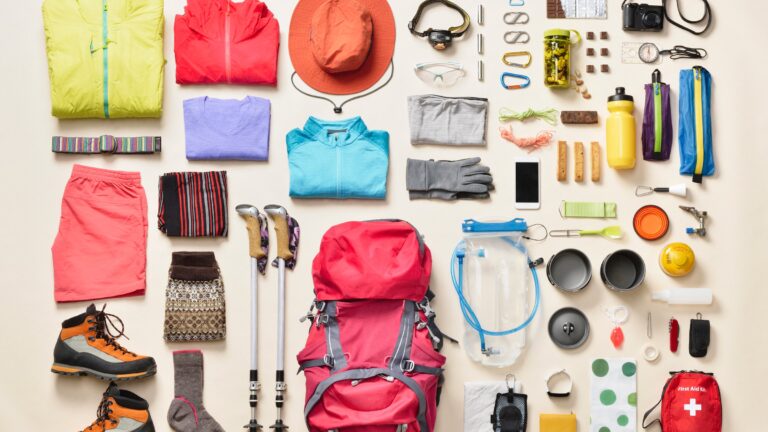Hiking is a popular outdoor activity. It involves walking on trails or paths through natural environments. It is a great way to exercise, explore nature, and enjoy the outdoors. Hiking provides numerous physical and mental health benefits and is suitable for people of all ages and fitness levels. However, before embarking on a hike, there are some essentials that hikers need to know to ensure a safe and enjoyable experience. Check out http://slot-mustang-gold.com/ for more important tips.
Benefits of Hiking
Hiking is a low-impact exercise that can improve cardiovascular health, strengthen muscles and bones, and boost overall fitness. According to the American Hiking Society, hiking burns 400-700 calories per hour, depending on factors such as body weight, terrain, and speed. Regular hiking can help reduce the risk of chronic diseases such as heart disease, diabetes, and obesity.
Hiking also has mental health benefits. Being in nature and away from the hustle and bustle of everyday life can reduce stress and anxiety, improve mood, and increase creativity. Hiking with friends or family can also strengthen social bonds and provide opportunities for shared experiences and memories.
Essentials to Know
Before embarking on a hike, there are some essentials that hikers need to know to ensure a safe and enjoyable experience. Here are some key things to keep in mind:
Choose the Right Trail: Hikers should choose a trail that matches their fitness level and experience. Beginners should start with shorter, easier trails and gradually work their way up to longer and more challenging hikes. Hikers should also consider the terrain, elevation, and weather conditions when choosing a trail.
Wear the Right Gear: Hikers should wear comfortable and appropriate clothing and footwear. Hiking boots or shoes with good traction and ankle support are recommended. Hikers should also dress in layers to accommodate changes in temperature and weather conditions. Other essential gear includes a backpack, water bottle, map, compass, and first aid kit.
Stay Hydrated: Hikers should drink plenty of water before, during, and after the hike to prevent dehydration. The amount of water needed depends on factors such as the length and intensity of the hike, temperature, and altitude. Hikers should also carry enough water with them to last the entire hike.
Practice Leave No Trace: Hikers should follow the principles of Leave No Trace, which means minimizing impact on the environment by packing out all trash, staying on designated trails, and avoiding disturbing wildlife and vegetation.
Know the Weather: Hikers should check the weather forecast before heading out on a hike and be prepared for changes in weather conditions. Hikers should avoid hiking during severe weather conditions such as thunderstorms or extreme heat.
Be Aware of Wildlife: Hikers should be aware of wildlife in the area and take precautions to avoid encounters. This includes keeping a safe distance from animals, not feeding them, and storing food and trash securely to avoid attracting them.
Hike with a Partner: Hiking with a partner or group is recommended for safety reasons. Hikers should let someone know where they are going and when they expect to return. They should also carry a whistle or signaling device in case of an emergency.
Hit Spots
There are countless beautiful hiking spots around the world, each with its unique features and landscapes. Some of the best hiking spots include the Grand Canyon in Arizona, USA, which offers stunning views of the canyon and the Colorado River below; Machu Picchu in Peru, which offers a challenging but rewarding hike through Inca ruins and breathtaking mountain scenery; and the Milford Track in New Zealand, which takes hikers through stunning fjords and alpine landscapes. Other notable hiking spots include the Swiss Alps, Yosemite National Park in California, and the Torres del Paine National Park in Chile.

